To a great extent, Hollywood, a field that creates starlight and infinite capital circulation and accumulation, is itself an important part of the development of capitalism. Therefore, when it wants to review or point out the problem of creating its own matrix, it will often show a very shallow state, and with the trend of commercial interests, it will eventually exhaust a newly created type and become a routine and frivolous. On the other hand, the independent nature of film art itself often seems to fall behind in this complex and powerful capital cycle. In Hollywood genre films, it seems that we can’t ask or criticize the film as an art, but we need to treat it as a symptom or the tip of the iceberg, and explore the "subconscious" hidden in it by paying attention to and analyzing some of its main parts.
Pokémon Detective Pikachu is one of the members of the Hollywood film assembly line, with a rigid mode and outdated routines. If you know something about this kind of film, you can easily guess the direction of the story, the setting of the role and the meaning it hopes to convey — — If it really means anything. Nevertheless, in this film, there are two issues that deserve a little discussion. On the one hand, these two issues appear repeatedly in Hollywood genre films, on the other hand, it seems to subconsciously show an important aspect and ideology of western capitalist society. The first is the magic of capital in movies, and the second is the eternal father-son stalk in such movies in Hollywood.
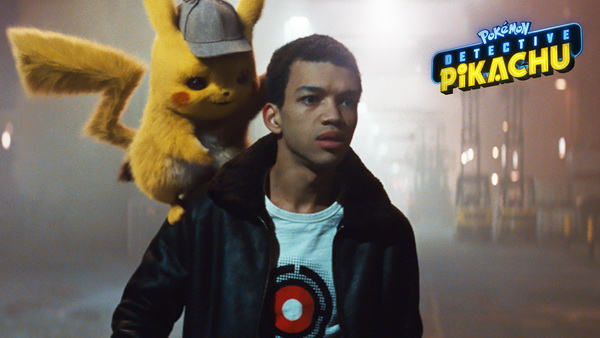
Tim and Pikachu
First, "absolute capital leads to absolute corruption"
If we change the famous saying of the British historian Lord acton that "power leads to corruption, and absolute power leads to absolute corruption", we can clearly show the most important clue in Pokémon Detective Pikachu, that is, "capital leads to corruption, and absolute capital leads to absolute corruption". In the film, Lyme City, where man and Pockmarked coexist peacefully, is based on the dream of Howard Clifford, a great entrepreneur. He hopes that through this attempt, both people and Pockmarked can grow into more perfect selves. When Tim, the hero, set foot in Lyme, the female voice in the city propaganda video gently tells the beauty and harmony of the city, and the people on the city road keep abreast with Baokemeng, enjoying themselves … … These scenes are no strangers to this kind of movies in Hollywood, and when we put them into this sequence, we will immediately be alert, that is, the prosperity and peace on the surface often hide the conspiracy behind them.
In the movie Zootopia in 2016, isn’t it very similar to Tim’s story that Judy rabbit from the countryside first set foot in the animal city? Animal City and Lyme City are also very similar to a great extent. They are both open and inclusive cities, where different species (man and treasure can dream) and natural enemies (carnivores and herbivores) can coexist peacefully. But according to Zootopia’s experience, we may have to be wary of what Lyme claims.
This vigilance comes from the long-standing utopia in the west and the subsequent dystopian literary tradition. With the rapid development of capitalism initiated by the western industrial revolution in the 19th century, many people of insight began to be anxious and wary of the environmental damage caused by large-scale machine production and the changes in traditional social organization forms and moral and ethical relations, so Utopia literature flourished in this concern. Whether it is the early communist thought in France or the yearning and return to the production mode of medieval workshops in the British arts and crafts movement. Its representative, william morris, once wrote a novel called The News of Utopia (1890). In this fantasy novel, Morris imagined the beauty and prosperity of the future society through the comparison between the old and the new, and at the same time attacked the evils of the capitalist society at the end of the 19th century.
Morris’s novel probably has the main elements of the same type of utopian novels, and it has also become a template to some extent. But for those who suffered from the two world wars in the 20th century, they were keenly aware that utopia might eventually become an "evil state", so Huxley’s Brave New World appeared in 1933 and George Orwell’s 1984 appeared in 1949, which were called dystopian novels.
To some extent, utopia is the product of the Enlightenment. In Hollywood movies, those who firmly believe in utopia have very strong beliefs about "perfection" and "purity", and can’t tolerate any impurities. It is this ideology that gives it the privilege to explain the "perfect future" and do whatever it wants in the present — — That is, the so-called "as long as the purpose is noble, the process can be unscrupulous" — — Violence is also rationalized in it. In Pokémon Detective Pikachu, isn’t Howard, who is disabled, crazy about perfection? For this reason, he spared no effort to combine people with Baokemeng, thus forming a new and more perfect organism.
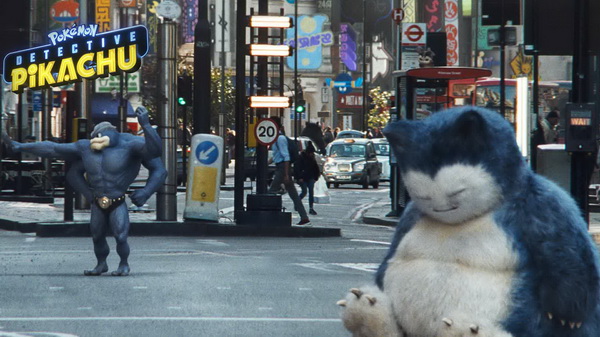
Seemingly perfect cities are just masks.
Hollywood genre films have absorbed the anti-utopian literary tradition. From Zootopia to Pokémon Detective Pikachu, seemingly perfect cities are just masks, but the forces that cause this mask or threaten this utopian dream are different in the two films. In Zootopia, it is the desire for power that creates crisis and corruption. In Pokémon Detective Pikachu, it is capital that leads to corruption. These two modes are very typical "evil" forces in Hollywood movies. On the one hand, they reflect some universal desires in human nature, on the other hand, they also expose the strength of the two most important gray forces in modern social/political system.
In Pokémon Detective Pikachu, Lyme has its own mayor, city council, police and media, but as Lucy said in the movie, they are all controlled by Howard. Howard was able to do this because of his strong financial resources, which made Lyme almost completely in his pocket from the beginning. Here, we see a very typical model — — This model is often accused of the inherent shortcomings of the capitalist system — — That is, the role of money in social politics, especially its intervention and even control in normal social and political operations.
This model emerges endlessly in Hollywood movies of this kind, and the rich are seeking for their own selfish desires — — Sometimes these selfish desires are expressed in a selfless form of "serving the country and the people" — — And use their own financial resources to do whatever they want. Among them, science, politics and propaganda are often the focus of attention, which once again reflects the complex mood of science as a "new religion" in modern society. On the one hand, people are happy with the practical changes it has brought, but on the other hand, they are afraid of its elusive power. In Jurassic Park, scientists used genetic technology to breed new dinosaurs, which caused disasters. In "Venom", scientists study alien creatures and create venom; In Pokémon Detective Pikachu, the powerful dream of Bao Ke Meng also comes from scientists’ cloning technology … … Behind these scientific researches, there is often an ambitious entrepreneur figure.
We may say that the panic about infinite capital in Hollywood movies is actually the anxiety about the hidden crisis of capitalist economy. As Marx pointed out, the capitalist economic system has some innate defects, that is, the inevitable economic crisis; And when it develops without restraint, there will be a social problem of "the rich get richer and the poor get poorer", which will lead to social unrest. Therefore, when this point is pointed out again and again in movies, some psychology hidden in it is to be alert to it, and even to provide corresponding solutions. Although these methods are often quite effective in solving disasters in movies, they are often very limited in real life. In Pokémon Detective Pikachu, the solution to the crisis caused by rampant capital is also a very conventional model in Hollywood movies, that is, the power of father and son.
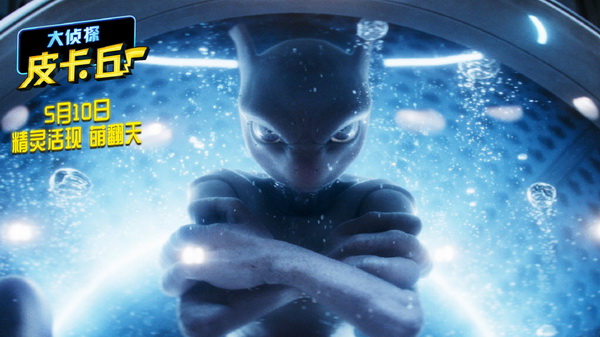
Super dream
Second, the routine of father and son
Two pairs of father and son appeared in Pokémon Detective Pikachu — — Entrepreneur Howard Clifford and his son Roger, Harry Goodman and his son Tim. The story begins when Tim, a boy who has not been in contact for many years, receives the news of his father’s death and goes to Lyme to collect his relics. There is a fixed pattern of the relationship between Tim and his father in Hollywood movies, that is, the search for "lost father": most of these father-son relationships are alienated or even hostile at the beginning for some reasons, which leads to the severance of news for many years, and finally the son comes because of sudden changes (such as birth, illness, death, etc.) of one party (mostly the father); In this process, the son will find another father image that is completely different from his own impression or imagination, and what has separated them for many years before is often some misunderstanding or emotional negligence that could have been explained … … Goodman’s son is a textbook demonstration of this model. In this kind of father-son relationship, there is a detail that needs attention, that is, the absence of being a wife/mother in the family. In Pokémon Detective Pikachu, neither Goodman nor Clifford, who will be discussed next, have the role of wife/mother. Tim’s mother died very early, and Roger Clifford’s mother probably died or was not in the family, but in any case, the female role was absent.
Because of this, the situation of Goodman and his son will appear, and the death of his wife/mother is even an important reason for this problem to a great extent. On the other hand, it is precisely because of the absence of the role of wife/mother that the father and son can become the protagonists of the story, which further shows that in a traditional patriarchal society, the power struggle often occurs between men, and it mainly revolves around both father and son.
To some extent, we can regard the father-son model just described as a metaphor, that is, the love-hate relationship between father and son pointed out by Freud, in which rebellion and inheritance are often the main theme. Therefore, in the Oedipus complex studied by Freud, "father" is an important influencing factor, even a decisive factor. With the growth of his son, his father’s authority began to influence him and ordered him to transfer the attachment and desire he had devoted to his mother, so that he began to look like his father, thus preserving and continuing the "male heir chain", which also enabled the patriarchal law and a series of related social systems, political concepts and ideologies to be consolidated and reproduced. Oedipus complex marks the continuation of patriarchal ideology, and in order to achieve this goal, the return of sons has become the main concern.
Between Tim and his father Harry, isn’t there a "alienation — — Understand — — The process of identity? To a great extent, there are two connotations in finding the lost father: one is to find the father who thought he was dead; The second is to find the connection between father and son again, and to be their successor again. At the beginning of the film, Tim works in an insurance company, and his friends are sparse, depressed and have no future. His dream of becoming a Baokemeng trainer is out of reach. With the journey to find his father, Tim’s life is also changing quietly, from boring to exciting and adventurous now, and in the process, he not only knows Bao Kemeng, but also knows the girl Lucy, and finally saves Lyme … … Tim’s change is accompanied by his approach to his father, so it is the desire to find his father that makes him stronger and stronger, and finally reaches the level of his father and can be seen again. Tim’s experience seems to be a very traditional journey of juvenile (hero) growth, but because of the image of "father" and its importance in the process, it is more like a process of returning to his father, that is, the return of some prodigal son.
In the film "Solyaris" filmed by the famous Soviet director Tarkovsky in 1972, there was also a similar father-son relationship. Because of the power of Solaris, the hero can see the ghost of his dead wife again and suffer from it; But at the end of the movie, the hero who returned to earth came to his father’s door and knelt in front of him crying … … When analyzing this part, Zizek pointed out that the pain of seeing the hero and his wife again not only brought about the reconciliation between them, but also brought about the sacred reconciliation between him and his estranged father. Here, it shows not only the redundancy of women, but also the closed relationship between father and son, that is, in order to maintain the purity of inheritance, women must be excluded, and sons must give up women — — Mother and wife — — Go back to your father.
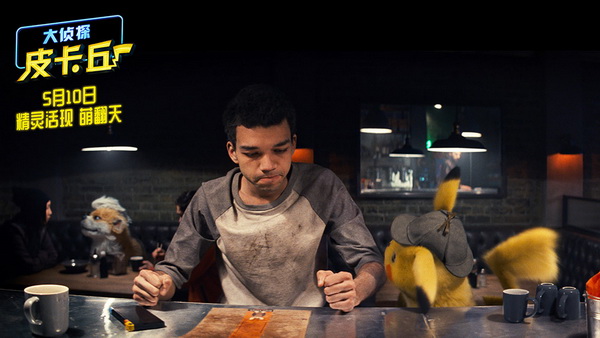
In Pokémon Detective Pikachu, contrary to Goodman’s father-son model, Clifford’s father-son model also lies in Freud’s Oedipus complex, that is, for fear of being castrated by his father, his son must carefully suppress and protect himself, but with the decline of his father and the strength of his son, this traditional power relationship will inevitably turn. Among Clifford’s sons, his father Howard is a successful entrepreneur, famous in the world and powerful, while his son Roger — — As Howard said to Tim in the movie — — I have always felt that I am living in the shadow of my father, and I hope to break free. However, with Howard’s illness and dependence on wheelchairs, the power contrast between father and son began to turn. But as the story progressed, we discovered that the image of "rebellious son" was completely invented by Howard himself to deceive Tim and others, and from beginning to end, the son was under the control of his father.
If Tim is looking for a "lost father", then Roger is fighting against a "strong father", but no matter what kind of father, their authority always exists, only fluctuates with different circumstances. Therefore, for Roger, overthrowing his father’s "tyranny" often requires borrowing the hands of others. In the movie, with the plot of Tim and others to finally destroy Howard, Roger can inherit everything that originally belonged to his father. Interestingly, on the one hand, he may criticize and deny his father, but on the other hand, he enjoys his privileges under the wealth and power created by his father. This also makes the continuous connection between father and son intact, so it is still "reconciliation" in a sense. In Freud’s view, with the decline of his father, his son will replace him one day, but this replacement is not to completely destroy everything his father built, but often to inherit and develop it. Therefore, the "resistance" here is often not a positive revolution, but just another dynasty change.
In nirvana in fire, the finally defeated old emperor said to his son who will inherit his position in the future, in this position, you will become me one day. This is the biggest curse of this kind of father-son model, that is, because the son did not thoroughly reflect, criticize and reconstruct the things left by his father from the beginning, the traditional father’s law and related structural problems still exist, and often strongly control all the newcomers who enter it, which is the meaning of the old emperor in nirvana in fire, that is, as long as the most fundamental problems are not studied and solved, the metropolis will eventually become a boiling point. This is most evident in China’s imperial system of more than 2,000 years.
In Pokémon Detective Pikachu, what will Roger, who gained the power of his father, eventually become? From the last detail in the movie, we can find that he may go back to his father’s old way. On the one hand, because of his own ambition, on the other hand, because when he enters the "father’s world", many things may be beyond his control. At the same time, it should be noted that as a new capitalist with almost hegemony in Lyme, it may be difficult for Roger to break through the numerous restrictions and agitation and destroy this closed wheel.
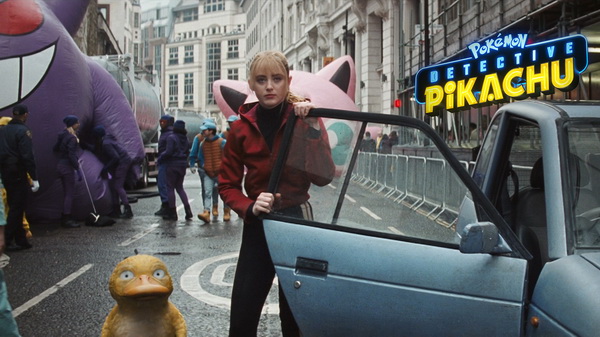
III. Conclusion: Limitations of Blasting Fire Fighting
If we look at the two problems discussed above together, we will find that in Pokémon Detective Pikachu, the way to solve the tyranny and corruption from capital is to join hands with father and son, that is, to eliminate the damage caused by one father and son through reconciliation. We often see this solution in Hollywood movies. No matter with the help of the dead father’s power (Thor) or its enlightenment (Black Panther), the son will eventually eliminate evil and restore the world order with the help of his estranged father. But there are many problems in this scheme.
Regarding the relationship between capitalism and father and son, to some extent, we can say that it is "father and son" who created the capitalist system and its ideology in modern western countries. When Engels studied the capitalist family and private ownership, he had already found that the patriarchal system itself eventually provided great help for the capitalist system to gain a firm foothold and flourish, and in return, the capitalist system accepted the patriarchal ideology and infiltrated into society, politics and culture under its strong influence. Therefore, from the beginning, capitalism and the patriarchal system have been allies and helped each other, so when the current one has problems, it will directly affect the latter, so it is whimsical for the latter to solve the problems caused by the former.
In Pokémon Detective Pikachu, we can see that the restoration of order in Lyme and the reconstruction of the relationship between father and son (Goodman and son) are synchronous with the replacement (Clifford and son), and the damage caused by capital is more like some external warning of the relationship between father and son, which will be rampant once it is in crisis (Clifford and son’s antagonistic relationship). When it is restored, the circulation and accumulation of capital are also restarted, and the security of the father-son relationship is protected through its power. Therefore, there seems to be a closed connection, interlocking, so that as a "son — — Father — — The rights and interests of the son’s capitalists will not be threatened, and further progress will be made towards 1%.
Therefore, the use of "father and son" to solve the ravages of capital and power may itself be a boiling point. In Pokémon Detective Pikachu, the problem solved by Tim and his father is only a specific event, and when Hollywood begins to plan its sequel, it means the emergence of a new crisis; On the other hand, the use of "father and son" to solve the problems originally created by them may even lead to the situation of blowing fire, and the final result can only be that the fire is burning more and more brightly, even if it does not appear now, it has become a hidden danger, waiting for the outbreak of one day.
关于作者